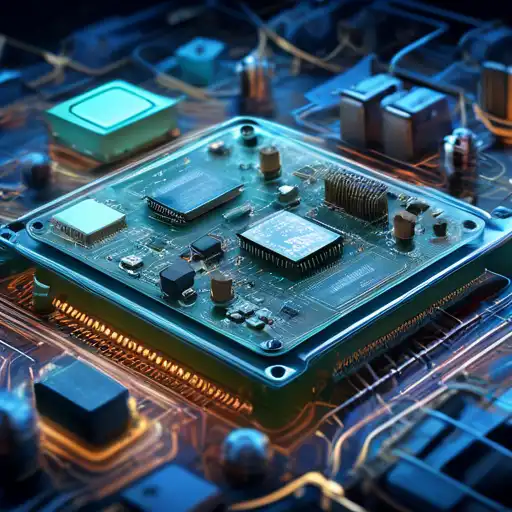The Hidden Heroes: How Embedded Systems Power Our Smart Devices
In the digital age, smart devices have become an integral part of our daily lives. From smartphones to smart refrigerators, these devices make our lives easier, more connected, and more efficient. But have you ever wondered what powers these smart devices? The answer lies in embedded systems, the unsung heroes of the technology world.
What Are Embedded Systems?
Embedded systems are specialized computing systems that perform dedicated functions or tasks within a larger system. Unlike general-purpose computers, which are designed to handle a wide range of tasks, embedded systems are optimized for specific tasks, making them more efficient and reliable.
The Role of Embedded Systems in Smart Devices
Embedded systems are the brains behind smart devices. They control the device's operations, process data, and communicate with other devices. For example, in a smart thermostat, the embedded system processes temperature data, communicates with your smartphone, and adjusts the heating or cooling system accordingly.
Why Are Embedded Systems Important?
Embedded systems are crucial for the functionality of smart devices for several reasons:
- Efficiency: They are designed to perform specific tasks, which makes them more efficient than general-purpose computers.
- Reliability: Embedded systems are built to operate continuously without failure, ensuring that smart devices work when you need them.
- Size: Their compact size allows them to be integrated into small devices like wearables and IoT devices.
- Cost-effectiveness: They are less expensive to produce and maintain, making smart devices more affordable.
Examples of Embedded Systems in Everyday Life
Embedded systems are everywhere. Here are a few examples of how they power our daily lives:
- Smartphones: From processing touch inputs to managing battery life, embedded systems handle numerous tasks in your smartphone.
- Home Automation: Smart lights, thermostats, and security systems rely on embedded systems to automate your home.
- Automobiles: Modern cars use embedded systems for everything from engine control to infotainment systems.
- Healthcare: Medical devices like pacemakers and glucose monitors use embedded systems to save lives.
The Future of Embedded Systems
As technology advances, the role of embedded systems will only grow. With the rise of the Internet of Things (IoT), more devices will become smart, requiring sophisticated embedded systems to function. Innovations in artificial intelligence and machine learning will also enable embedded systems to become more intelligent and autonomous.
In conclusion, embedded systems are the hidden heroes that power our smart devices. They make our lives easier, more connected, and more efficient. As technology continues to evolve, the importance of embedded systems will only increase, shaping the future of smart devices and the IoT.
